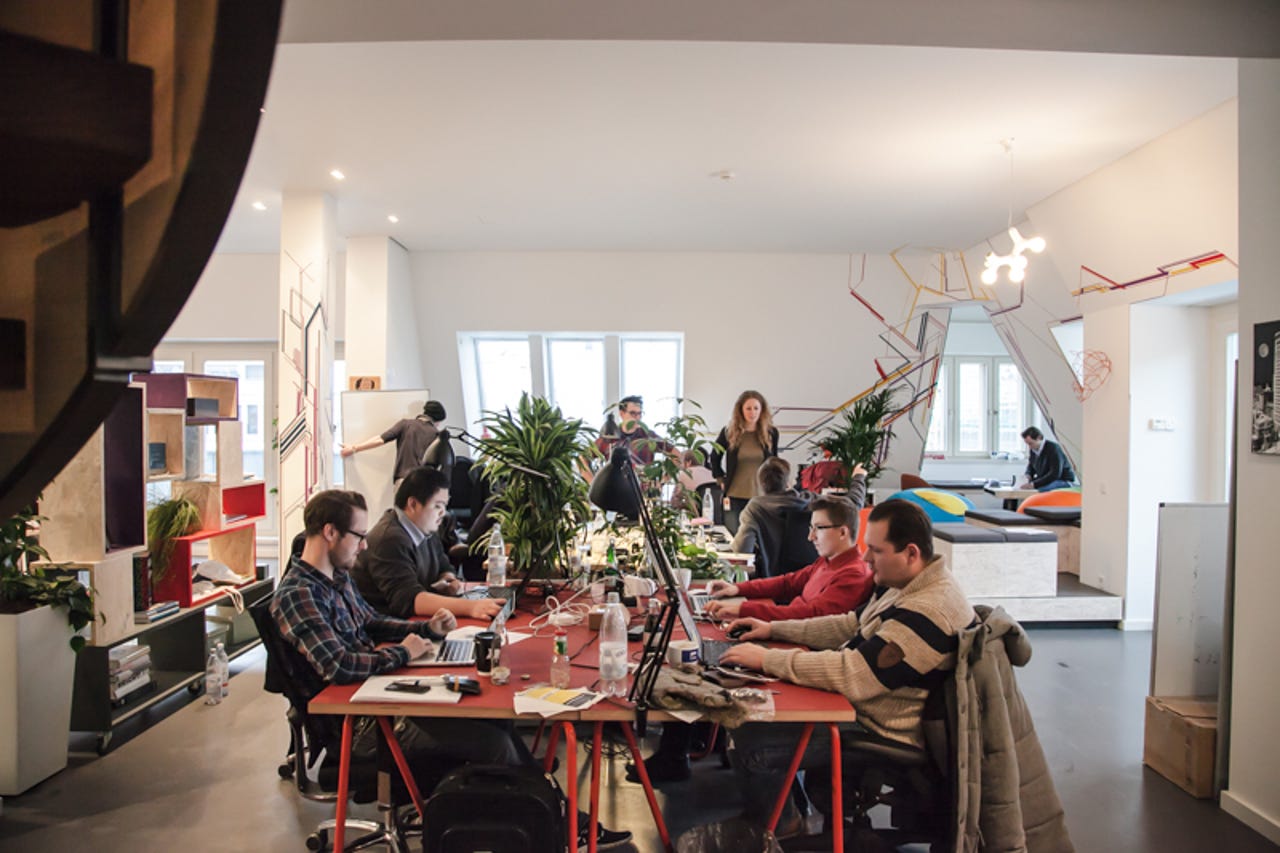Behind the scenes at Microsoft's Berlin accelerator


When Microsoft announced in November that it was opening a startup accelerator in central Berlin, some commentators were sceptical, saying that the tech giant was late to the party. Indeed, by that time, companies such as Mercedes Benz and Deutsche Telekom had already made landfall in the city, and their accelerators and others were up and running.
But less than three months after the software behemoth began hosting its first round of startups, funding has already been forthcoming. Just last week, Microsoft announced that a local investment firm had invested €750,000 ($1m) into Sensorberg, a startup in the accelerator programme that's developing a management system and development kits for Apple's iBeacons.
Besides Sensorberg, there are eight other startups currently using the accelerator. They represent a good cross-section of the Berlin startup scene, and range from Researchcluster, a startup working on a mobile health app, to Makeapoint, which aims to somehow make online discussions more civil. The nine startups were selected from a group of about 360 applicants for the inaugural intake.
Since the programme launched in November, the teams have been working with mentors to develop their products, learning from people who have been through the process before, and participating in workshops with experts who address issues that are important to startups, such as intellectual property law and taxes.
On a recent afternoon at the accelerator, which takes up the two top floors and the roof of a refurbished building on Berlin's historic Unter den Linden avenue, MyLorry's Benjamin Pochhammer was stuffing envelopes. Pochhammer described MyLorry as an 'Uber for transport', where users who need things transported — a sofa from Ikea or a document, for instance — can connect with somebody who has the means to help them.
Over the past few months, the startup had been honing its outreach, and had found that offline marketing tactics — real letters — were a good way to build its customer base.
"They're usually opened by the people who would find the service valuable," he said — such as company secretaries who might use the app instead of a traditional courier, for instance.
Pochhammer was upbeat about the Microsoft Ventures experience. "It's good that you're not in your tunnel," he said, "being around people who can give you suggestions."
For David Hoermeyer, co-founder of Babbo, which is developing language learning tools, the accelerator has added a practical layer to the start-up-building experience. "There's theory that you can read about in books, but it's better to hear about it from people who have been through this before," he said.
What's in it for Microsoft?
For its part, Microsoft has been relatively transparent about one of its main goals in the Ventures programme: exposing startups to the company's software. In Berlin so far, this has proved partially successful. Although none of the startups are currently developing applications for Windows Phone or Windows 8, seven of the nine are now using Windows Azure, Microsoft's cloud platform. MyLorry's Pochhammer said that before participating in the Microsoft program, his technology team had experimented with Amazon Web Services, but eventually opted for the Azure platform.
While this is good for Microsoft's bottom line — more customers and exposure are never a bad thing — it also allows the company to tweak its offerings based on what startups need, and move outside its historic enterprise heartland. "This is what we need — we constantly have to develop products and make them more attractive for startups to use, and the feedback we get here is of big value," said Stephan Jacquemot, principal at Microsoft Ventures in Berlin.
More broadly, Microsoft wants to encourage the startup scene in Berlin — which has been relatively inward-facing, compared to those in Stockholm or Tel Aviv, for example — to expand its reach beyond Germany and the DACH region.
"Being Microsoft, a global company, can we give something to the ecosystem that helps start-ups be of global relevance? This is the way the city has to go and we have to learn how to do this. This is one of our biggest challenges," Jacquemot said.
And indeed, Marius Sewing, former CEO of education startup Tutoria and current CEO-in-residence at the Berlin accelerator, has been helping some of the startups in the hub think about strategies for reaching beyond borders. For some startups, he said, it makes sense to stay in Germany, but for others, "we encourage them to reach out to other markets" because "there are business models that might work in Germany that maybe won't work in other markets. And there are business models that won't work here, but can have success on the global level. It's about focus, and to prioritise."
What's next?
The final leg of the accelerator programme will be focusing on fund-raising strategies. The programme will end in late March, with a demo day where the startups will pitch their products to investors, executives, and the media. Also in March, applications for the second accelerator round will open.
For MyLorry, which launched a beta version of its service in Berlin last November, the experience has been marked by growth, and Benjamin Pochhammer said his goal right now was to "make MyLorry big".
But with a quickly-growing staff, the start-up would soon need its own offices.
"You need space to grow."